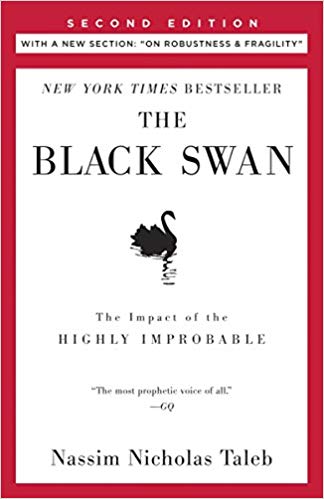

This article is an excerpt from the Shortform summary of "The Black Swan" by Nassim Taleb. Shortform has the world's best summaries of books you should be reading.
Like this article? Sign up for a free trial here .
What is deterministic chaos? How is it different than “true randomness”? Can we make predictions in situations of deterministic chaos?
Deterministic chaos is a system whose operation could be predicted, but whose complexity makes prediction so difficult that it’s effectively impossible. That is, if we had the right information, we would be able to make sense of “chaos.”
We’ll cover situations of deterministic chaos and if it affects our decision-making.
Deterministic Chaos: Our Information Is Always Incomplete
Mathematicians and philosophers draw a distinction between “true randomness” and “deterministic chaos.” A “random” system is one whose operation is always and forever impossible to predict. A system of deterministic chaos is one whose operation could be predicted, but whose complexity makes prediction so difficult that it’s effectively impossible. That is, if we had the right information, we would be able to make sense of “deterministic chaos.”
Taleb notes that, for normal people trying to make predictions about their stock portfolio, for example, or the appreciation of the value of their house, there’s no difference between “true randomness” and “deterministic chaos.” That’s because when we’re faced with a dynamical system, we always lack the necessary information to decide whether it’s truly random or simply chaotic.
Such is the case with history as well: Perhaps each major historical event conforms to some incredibly complex plan—that is, perhaps history is just chaotic, not random—but we’ll never have enough information to discern that plan.
Predicting the Past
Whether or not we live in a system of deterministic chaos, we’ll never have enough information to make predictions, even when we know the outcome. Through the limitations of inductive reasoning as illustrated by the turkey anecdote, as well as the distortions of the narrative fallacy and silent evidence, we’ve seen how problematic the past is vis-à-vis prediction. But because of these phenomena and others, the past itself is as unknowable as the future.
One of the major obstacles that prevents us from knowing the past with certainty is the impossibility of reverse engineering causes for events. That is, there’s no way to determine the precise cause of an event when we work backward in time from the event itself.
An example should help illustrate.
Think of an ice cube sitting on a table. Imagine the shape of the puddle that ice cube will make as it melts.
Now think of a puddle on the table and try to imagine how that puddle got there.
The second thought experiment is much harder than the first. With the right physics know-how and ample time, one could model exactly what kind of puddle will result from the melting ice cube (based on the cube’s shape, the environmental conditions, etc.). In contrast, it’s nearly impossible to reverse engineer a cause from a random puddle (because the puddle could have been caused by any number of things).
When historians propose causes for certain historical events, they’re looking at puddles and imagining ice cubes (or a spilled glass of water, or some other cause). The problem is that the sheer number of possible causes for a puddle—or a historical event—render any ascription of cause suspect. We don’t have the information to fully understand the system of deterministic chaos.
Poincaré’s nonlinearities too help illustrate this problem. Again, with the right tools and time, one might be able to observe how the flutter of a butterfly’s wings in India causes a hurricane in Florida, but it would be impossible to work backwards from the hurricane to that cause—there are just too many other tiny events that may have played a part.
———End of Preview———

Like what you just read? Read the rest of the world's best summary of "Black Swan" at Shortform . Learn the book's critical concepts in 20 minutes or less .
Here's what you'll find in our full Black Swan summary :
- Why world-changing events are unpredictable, and how to deal with them
- Why you can't trust experts, especially the confident ones
- The best investment strategy to take advantage of black swants






